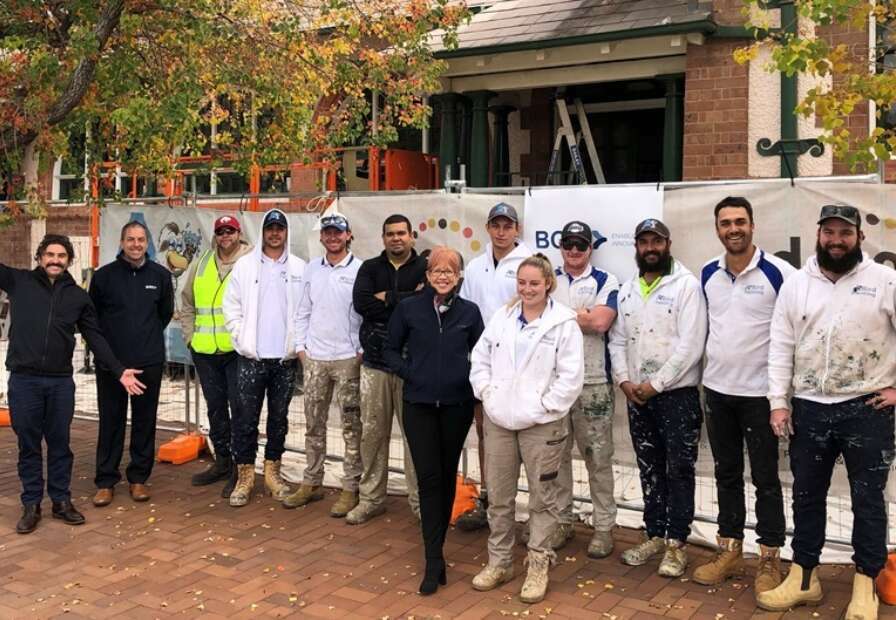With spend in supply chains representing on average 75 per cent of an organisation’s budget1, procurement strategy and processes can have a strong impact on the social, environmental and economic sustainability of business at large and the communities in which they operate. Only in recent years has the power of procurement to contribute to sustainable objectives – both positively and negatively – become widely discussed, with many organisations now making purchasing decisions that take into account environmental and social risks, benefits and implications.
In May 2020, BGIS launched its sustainable procurement policy for the APAC region in alignment with ISO 20400 – the new international standard for sustainable procurement that encourages businesses to apply sustainability principles across all aspects of their purchasing activities, including assessments of organisational governance, human rights, labour practices, the environment, fair operating practices, consumer issues and the community.
“While BGIS always had robust sustainable procurement inclusions in our pre-existing procurement policy, over recent years our organisation had matured in its adoption of broader sustainable procurement practices,” explained Brian Peirce, BGIS’ Director of Procurement – APAC. “We had rapidly expanded our engagement of diverse supplier enterprises, invested in systems to safely manage our supplier labour force and made significant progress in mitigating modern slavery in our supply chains. With the release of ISO 20400, we saw great alignment with our own established operating practices and felt that we could be an early adopter of its core objectives.”
To support the policy and ensure transparency regarding outcomes achieved as a result of its implementation, BGIS’ procurement team also developed an overarching sustainable procurement framework, which informs not just procurement practices, but also operating guidelines, compliance and audit activities, supplier relationship management and ongoing governance and reporting.
“The policy and supporting framework took around three months to develop, with a key challenge being to ensure our approach to the ISO 20400 core objectives were repeatable in nature and could be reported across our entire supply chain,” said Brian. “We strongly believe in making our progress visible, which is great for incentivising our account teams to outperform each other in terms of diverse supplier engagements, but also provides for the creation of benchmarks and targets that we can discuss with our clients.”
Being a large organisation with a sizeable geographic footprint, BGIS places high importance on using its considerable buying power to generate social value in the regions and communities in which it operates. The sustainable procurement policy reaffirms and formalises the company’s commitment to engaging local suppliers, disability service providers, small- to medium-sized enterprises, and – in particular – Indigenous-owned businesses.
“BGIS is an Innovate RAP partner with targets to increase spend with Aboriginal and Torres Strait Islander suppliers. Throughout 2020, we provided opportunities for 24 Supply Nation-certified members and increased our Indigenous spend by almost 60 per cent year-on-year. This places us well above the Australian national average, with an Indigenous spend 3.3 times greater than the facilities management industry average. In terms of successful outcomes resulting from the sustainable procurement policy, this is certainly one our proudest so far.”
There’s no denying that taking a sustainable approach to procurement requires some level of corporate upheaval, not least of all onboarding staff with the cultural change. Further, existing supplier relationships need to be reassessed based on each supplier’s green track record, ranging from packaging policies and delivery methods to the existence of relevant green accreditations. When it comes to assessing potential new suppliers, Brian’s team are looking for companies that are making a difference in their respective community.
“We look further than mission statements when we assess a potential partner – we are looking for proof of community impact and minimisation of environmental footprint, and evidence of a culture that’s consistent with public or community benefit,” said Brian. “First and foremost, we want to see strong leadership on the advancement and promotion of diverse supply chains, particularly those that are underpinned by an economic, social, cultural, or environmental mission.”
While the conversation around sustainable procurement has taken time to gain the traction we see today, demands for demonstrable sustainability strategies are filtering into many new business relationships and the emphasis on sustainable procurement will only increase over the next few years.
For organisations balancing pressing business imperatives, this is not a cultural shift that can be achieved overnight. However, far from impeding an organisation’s effectiveness, the benefits of sustainable procurement can include the potential to drive down costs, eliminate waste and build better brand reputation and competitiveness – meaning the introduction of a robust procurement system can deliver immediate value.
“The good news is that rather than being a roadblock to achieving business objectives, sustainable procurement can contribute by increasing reputation and brand recognition, as well as effecting revenue growth, improved consumer confidence and better supplier relationships,” explained Brian. “For BGIS, we pride ourselves on being a leader in our industry when it comes to corporate social responsibility. Developing a sustainable procurement policy and framework in alignment with ISO 20400 has enabled us to truly demonstrate leadership in this area to clients, suppliers and business partners.”
BGIS regularly measures its performance in sustainable procurement against key metrics, with outcomes shared publicly in its annual Corporate Social Responsibility Report.
1 Green Building Council Australia, ‘New Guidance on Sustainable Procurement: ISO 20400’, https://new.gbca.org.au/news/gbca-news/new-guidance-sustainable-procurement-iso-20400/
Contributors
Brian Peirce, Director of Procurement – BGIS APAC
Cloe Maxwell, Communications Manager – BGIS APAC

